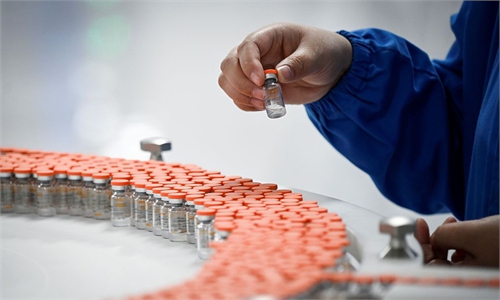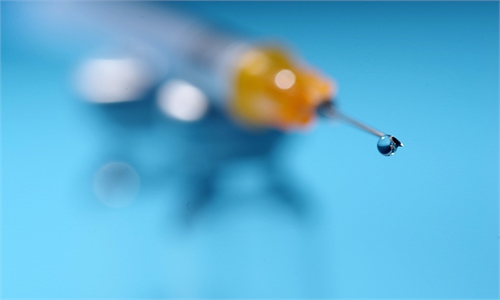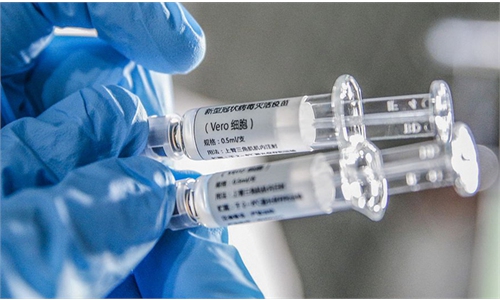Coveted COVID-19 Chinese vaccines provoke social media scams, scalpers targeting overseas Chinese
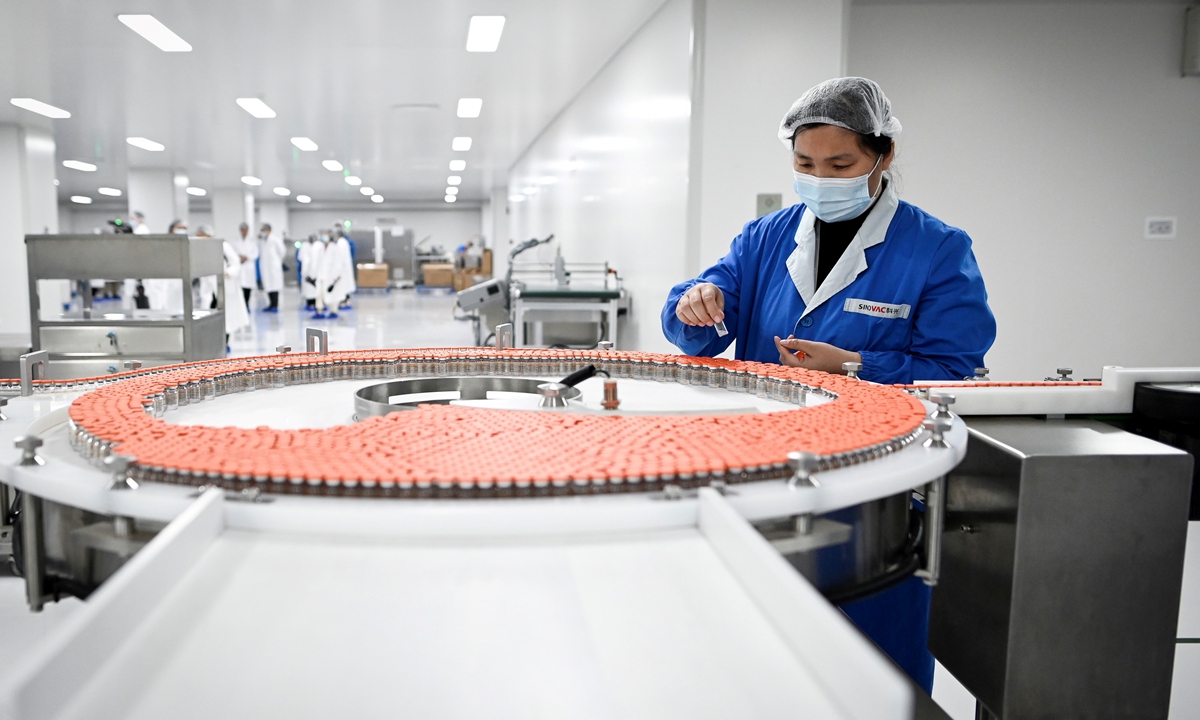
A vaccine factory in China Photo: AFP
"I can secure you a dose of Sinopharm with a very competitive price of 3,000 yuan ($458) for two doses, getting injected in a first-class public hospital in Beijing. Many like you have approached me asking for quick accessibility, and no one reported any serious adverse reaction so far," Xiao said when peddling COVID-19 vaccines via WeChat to a Global Times reporter who pretended to be a student going abroad and desperate for vaccine.Xiao, who declined to tell the reporter her full name as many of her peers, is one of many vaccine "scalpers" lurking in the social media circles of Chinese students planning to study abroad, selling her business opportunities.
As the vaccine has not been officially approved for mass injection, the scalpers aim at the chance to earn a windfall by promising potential clients quicker accessibility to it without queueing amid higher demand in emergency use.
Global Times reporters found that the COVID-19 vaccines claimed by scalpers are being sold for excessive rates in a thriving black market, or more specifically, across social media.
Most scalpers claim they have personal connections with leading Chinese vaccine producers - mainly Sinopharm and Sinovac - and are able to secure vaccines with a charge of between 3,000 to 7,000 yuan for two doses, at least seven times the reported regular vaccine price (200 yuan for single dose of Sinovac's vaccine).
A scalper that the Global Times reached even claimed himself as an internal staff member of Sinopharm who can offer the "quickest fast track" in the registration process - as soon as within one day. Others estimate the process to be two to five days.
The vaccine package and certificate in their advertisement looks no difference to the one officially released by producers. A student who bought a scalper's service on Wednesday told the Global Times that he checked the vaccine's production date, type, producers, and production-tracking barcodes when getting the injection but did not find any obvious faults.
Under the scalper's services, reservation registration for vaccines requires users to provide their real name, ID number, passport number and address. Vaccination sites vary from public hospitals and hotels to partnered medical agencies, but all in the capital Beijing, scalpers claimed.
Both Sinopharm and Sinovac have denied they entrusted any individuals or agents to sell the unapproved vaccine, and warned the public not to take the bait of such ads.
The Wuhan Institute of Biological Products, affiliated to Sinopharm, issued a clarification in August saying that the vaccine had not yet been officially marketed and that there was no case of it being sold privately.
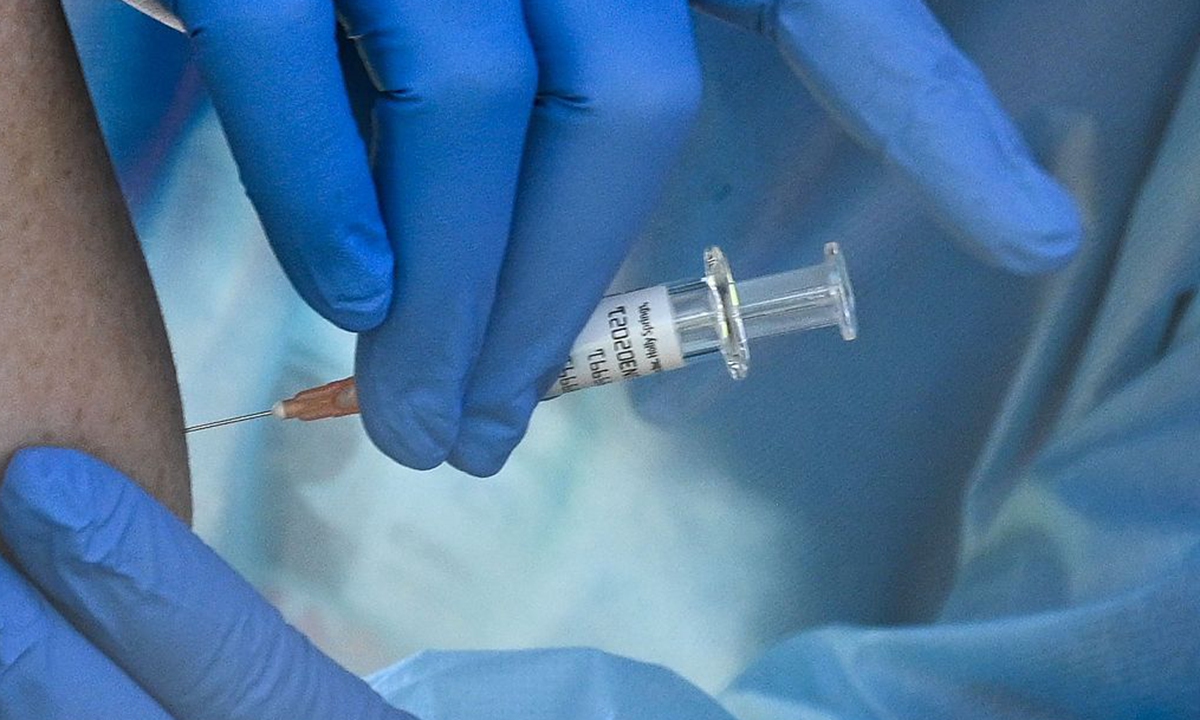
vaccine Photo:VCG
The number of Chinese overseas students reached 710,000 in 2019, according to a white paper given by an educational service provider New Oriental. For most of them, procuring a vaccine is an impossible task as it seems to not be available anywhere except some cities such as Jiaxing and Yiwu in East China's Zhejiang Province.Many posts of young students seeking channels to be vaccinated are pervasive across social media. Some students are stuck overseas during the outbreak and are now planning their way to fly back for a potential dose.
"We sort of get you a place for an emergency vaccination, for example, by putting you on a list of appointments with a group of state-owned enterprises' workers," Xiao claimed. "We have seen many students or others coveted for the vaccine come to manufacturers to ask for doses, but they have been turned away due to the huge demand. That's why our price is higher."
Media reported in October that Sinopharm has opened its reservation digitally for the public in Beijing and Wuhan on its official website; but it closed the service soon without clarifying the reason.
Chinese vaccines advertised online likely dangerous counterfeits, warn experts
Even more frightening than those scalpers are overseas counterfeiters, industry insiders told the Global Times, saying that most of so-called "Chinese vaccines" touted overseas are purely counterfeited with an unknown source of protein or water used.
A study from the Australian National University found that vaccines and other scarce medical supplies have been listed for sale on the "dark web," an online market enabling quick and untraceable access to illegal drugs or weapons.
Antonio Magi, president of the dell'Ordine Doctors' Association in Rome, recently warned: "Don't take a risk to buy Chinese vaccines privately from the black market. We have to wait because most of them are fake."
According to Italian media Il Fatto Quotidiano, many family doctors in Rome have reported that a number of Italians have bought so-called "COVID-19 vaccines" with unknown origins, which were possibly made in China and brought to Italy by Italian Chinese, but it was difficult to distinguish between genuine and fake vaccines.
"In August, I received a WeChat request from a stranger, asking if I could help bring a batch of medicines from China to the UK by the cheapest sea freight. When I saw the picture he sent me, on which it was written "COVID-19 vaccine," I refused him," Du Chen (pseudonym), a director of a logistics company living in London, told the Global Times.
Du is an owner of a Chinese supermarket in London. She said vaccines have recently become one of the most popular topics among Chinese, which may be the reason why the adventurous "business opportunity" came to her. "The outbreak in the UK has been recurring; people have long been expecting that a stable and effective vaccine will soon be available for mass vaccination."
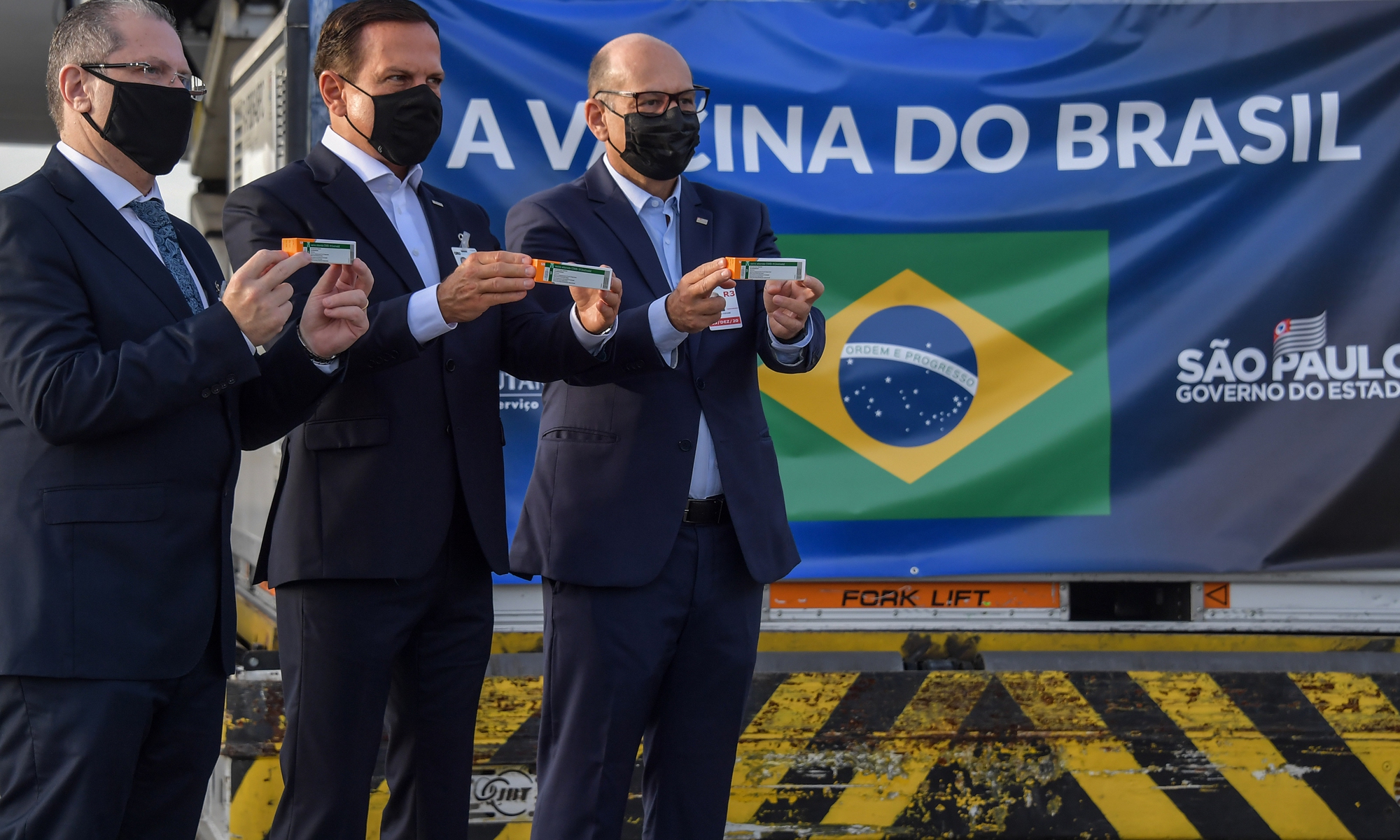
Sao Paulo Governor Joao Doria (center), Sao Paulo State Health Secretary Dr. Jean Gorinchteyn (left), and Butantan Institute Director Dimas Covas pose for photos next to a container carrying doses of the CoronaVac vaccine after it was unloaded from a cargo plane from China, at Guarulhos International Airport in Guarulhos, Brazil on Thursday. Photo: AFP
Chinese embassies in South Africa, Italy, Uganda and Cote d'Ivoire have recently issued notices in quick succession reminding local Chinese not to buy or vaccinate using illegal COVID-19 vaccines without authorization as they have received reports that some people have posted ads on social media to illegally sell the so-called COVID-19 vaccines.
A source with Sinopharm who declined to be named told the Global Times that they have been aware of the black market and have been approached by police about it. But the source confirmed that each of their vaccines can be traced strictly to an individual vaccinee, and they will not be shipped overseas without approval.
"Police investigations revealed that the vaccines were in fact unrelated to Sinopharm," said the source. The public security department did not respond to the Global Times' official request as of press time.
A source from the Ministry of Public Security told the Global Times that they have been working with embassies around the world to keep an eye on whether fake vaccines from China are actually circulating overseas.
Peddling vaccines on social media platforms such as WeChat is also illegal, as the Vaccine Administration Law of China says that, apart from disease control and prevention agencies, no institutes or individuals are allowed to provide vaccines to vaccination units.
Chinese authorities previously launched a serious crackdown on the black market's sale of vaccines in 2016 after a crisis in which nearly 570 million yuan worth of illegal vaccines were suspected of being sold in 18 regions.
